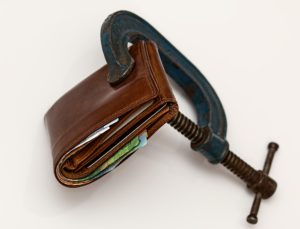 This time of year there are a lot of articles appearing in the media on year end tax planning – but its an ongoing process – here are our top twelve easy tips to keep tax bills under control – they are not just for year end, they are day to day:
This time of year there are a lot of articles appearing in the media on year end tax planning – but its an ongoing process – here are our top twelve easy tips to keep tax bills under control – they are not just for year end, they are day to day:
- Make full use of tax allowances in a marriage, generally by ensuring that income is equalised as far as possible. Particularly important for small businesses – look at share ownership, and look at a salary for a spouse who isn’t using all their allowances. Also look at Transferable Allowances, and watch the High Income Child Benefit Charge.Income equalisation is also important for the ownership of investments and assets which may produce a substantial capital gain in the future.
- Make sure you have a will, and an Inheritance Tax plan, and keep both regularly reviewed (every 5 years or at major life changes). The Current IHT system is relatively benign, but without care it’s possible to waste the valuable IHT allowances available within a marriage, or on business and agricultural assets.Dying without a will also makes life less easy for those left behind.
- Make full use of Government sponsored tax breaks on savings, e.g. pensions, tax exempt Individual Savings Accounts, Venture Capital Trusts, Enterprise Investment Scheme.
Pensions are not always popular, but the simple act of investing in a pension quite often allows you to save money with 40% tax relief today and pay tax on those savings at basic rate in the future – meanwhile the money you save in tax can be invested to grow further for you.
ISA’s are a basic for all savers as well – a simple way of helping your investment to grow further, particularly for higher rate taxpayers.
EIS and VCT are a bit more complicated, but offer valuable savings for the sophisticated investor. - Make sure your business structure is right – the current tax system favours companies for trading, and personal ownership for assets, but there are a lot of pitfalls. It’s because of these pitfalls that advice is needed to get it right.
- Plan for making use of the very generous reliefs available against Capital Gains Tax on the sale of a business. Under the Entrepreneurs Relief regime, gains realised on selling or closing a business are subject to a low tax rate, however watch for pitfalls. The rules are complicated, and you need to take advise a few years ahead of any planned transaction. Don’t mix investments and trading in a company – it may compromise the business asset status of your shares.
- Avoid company cars, there are nearly always more tax efficient ways of owning a vehicle. Pay in lieu, mileage claims at HMRC approved rates, a company van – all are probably better. The government do not like company cars, and the tax regime makes this clear.
- Check your tax code if you are an employee, particularly if you are a Higher Rate Taxpayer, have other sources of income, have a company car or similar benefits, or are a company director – many tax codes are wrong, even in these days of automated payroll reporting, and HMRC normally compound matters when they try and correct them. Their actions are well intentioned, but in striving to simplify matters and take people out of Self Assessment by using their tax code instead, many peoples tax becomes incorrect. Watch this if you don’t fill in a Self Assessment each year – if you do fill in a Self Assessment, don’t worry as the tax code sorts itself out.
- Make sure you plan your business dividends, if you run a company, to use the Dividend Allowance – currently £5,000 but reducing to £2,000 from 19/19 onwards – Dividends in this band are free from further tax.
- Plan business investment – purchase of capital assets and major discretionary expenditure like premises refurbishment. Generally its better to do this just before your business year end rather than just after, but if you expect next years tax rate / profits to be higher, then deferral may be sensible.
- Check your VAT accounting – are you paying VAT on things you should not be? Are you claiming all the VAT back you are entitled to? Would you be better off on the flat rate scheme? The Flat Rate Scheme can offer savings for small businesses, but could be a disaster for others – you need to do the maths, and be aware of the new restrictions for Flat Rate in respect of “Low Cost Traders”. Watch for small vat over or under claims on repeated transactions – they soon add up, eg vat on supermarket purchases.
- Keep your business records up together, in order and complete, and get your tax returns and accounts in on time – you will save on interest and penalties, and you will reduce the risk of a tax inspection. Also, getting your records to your accountant on time and in order, gives your accountant more time to do their job of helping you be more tax efficient and financially savvy (trust us on this, its true…).
- Take good professional advice on your taxes – do not take HMRC guidance at face value – quite often its over simplified, and sometimes they report how they want the tax rules to work, not how they actually do work.
Definitely do not trust “Fred from down the pub” who was self-employed for six months in 1972 and is now an expert.
Talk to a good accountant and tax advisor.

